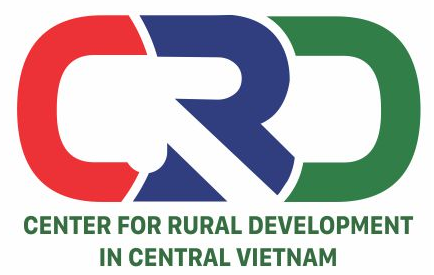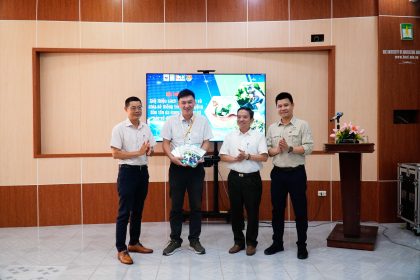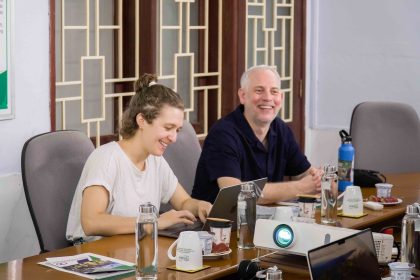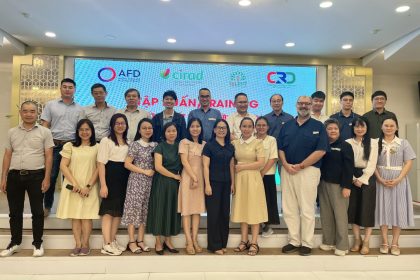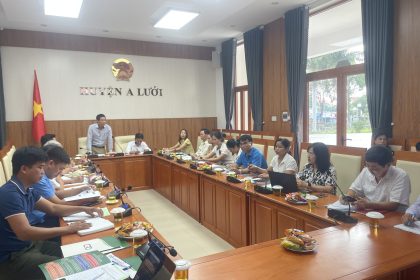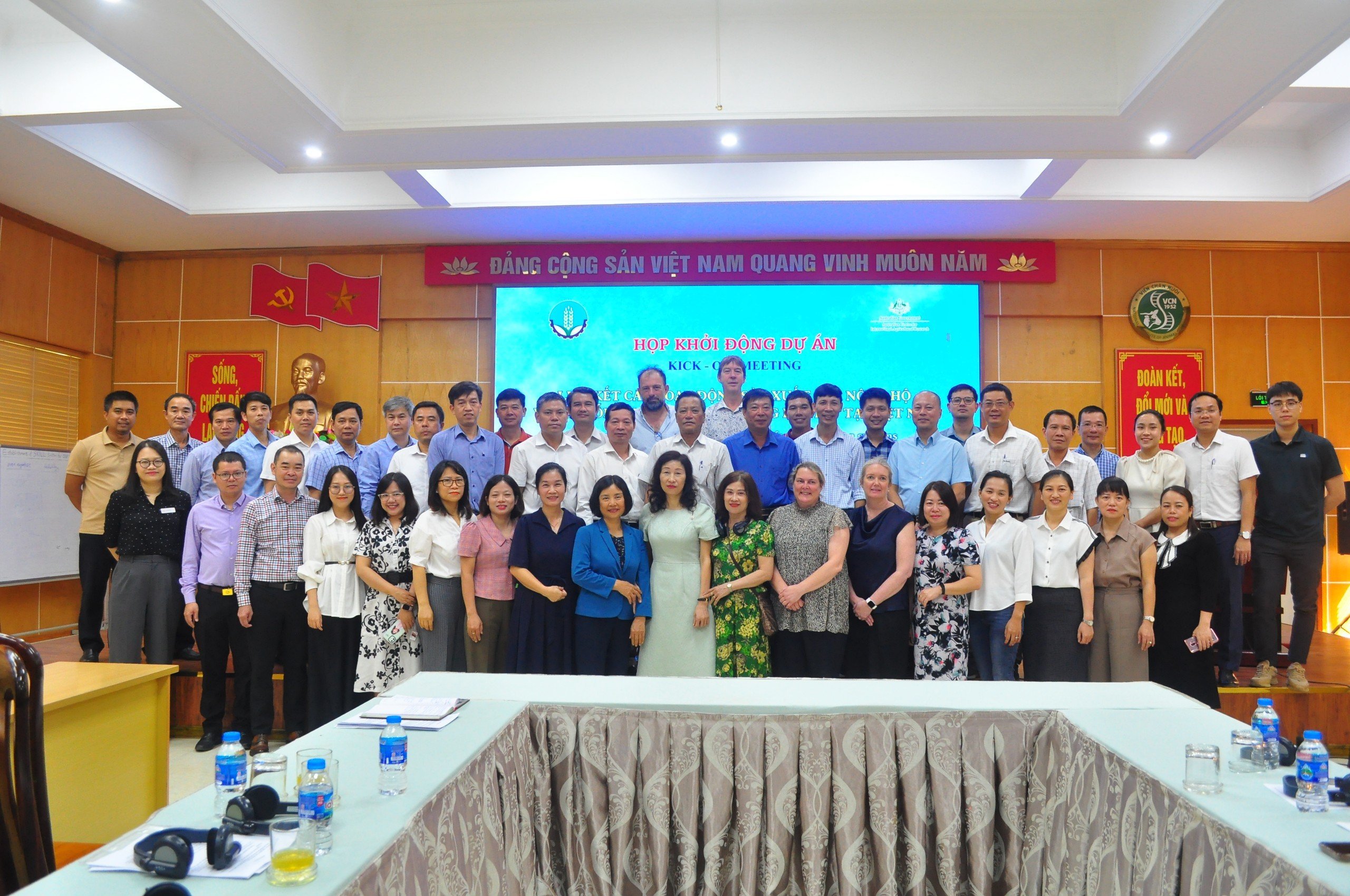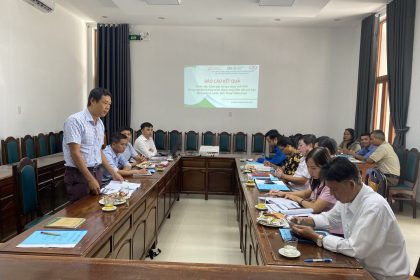
Overvie of the workshop
At the end of November 2024, the Center for Rural Development in Central Vietnam (CRD) organized the final workshop to report on the results of the project “Climate-Smart Agriculture for Ethnic Minorities in Central Vietnam.” The project was funded by the International Climate Initiative (IKI) through the German Development Cooperation Organization (GIZ).).
The objective of the project was to support ethnic minorities in diversifying their livelihoods through climate-smart agricultural practices to adapt to the adverse effects of climate change. The conference was attended by Mr. Ho Van Ngum, Vice Chairman of A Lưới District People’s Committee, Dr. Ho Le Phi Khanh, Deputy Director of CRD, representatives of relevant departments, and project beneficiaries.
At the workshop, Mr. Phan Van Hung, the project coordinator, highlighted the main results of the project, which are: (1) Ethnic minority communities at two target communes are aware of the impacts of climate change and know about suitable climate-smart agriculture (CSA) practices adapted to local conditions.; (2) Climate-smart agricultural (CSA) models have been piloted and scaled out to enhance adaptive capacity to climate change; and (3) Target households have better market access through inclusive CSA models’ product value chain.
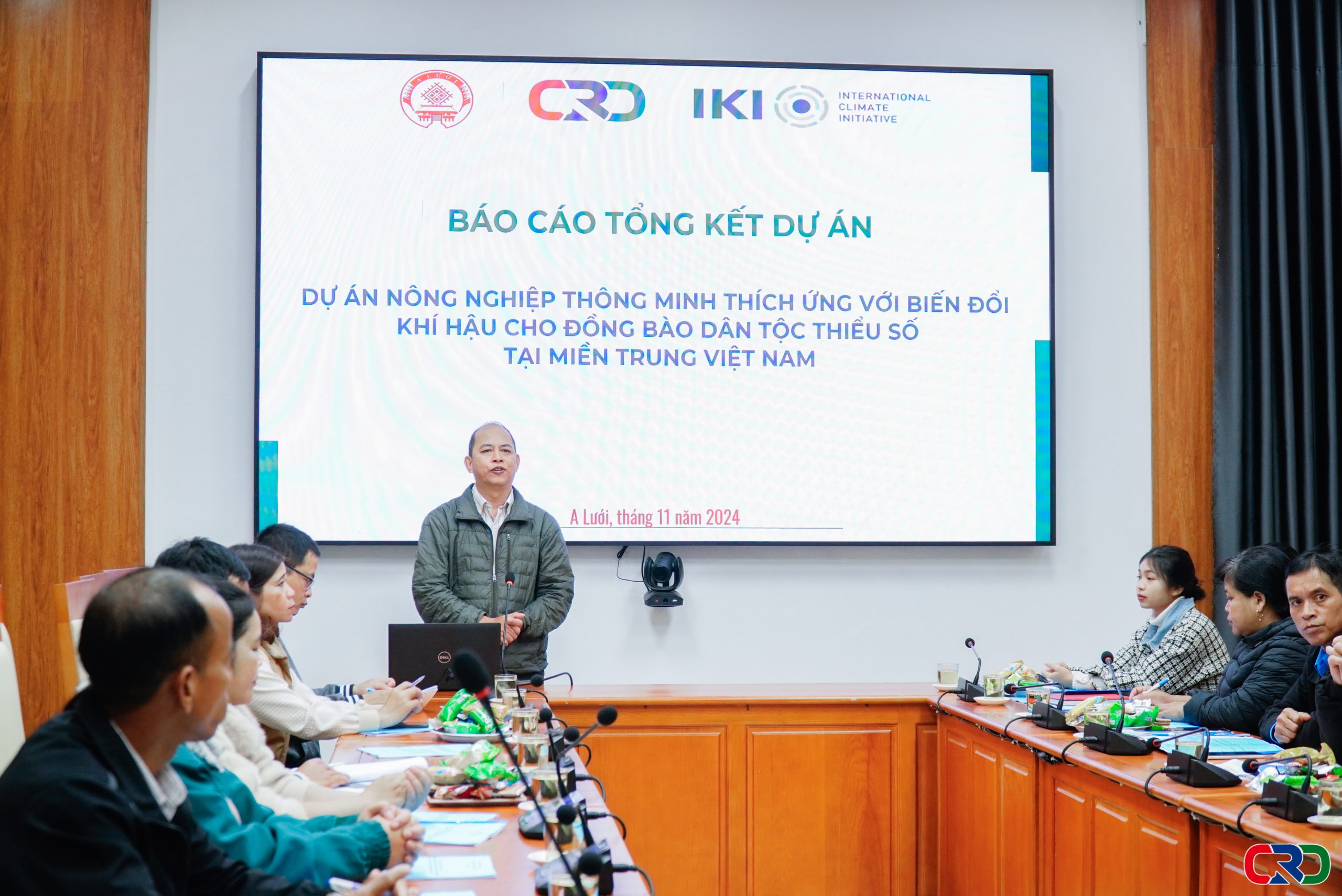
Mr Pham Van Hung – The Project coordinator – presented the project’s results
The project raised awareness of climate change impacts and climate-smart agricultural practices among ethnic minority communities. Specifically, 50 people (including commune agricultural officers, village leaders, women’s union representatives, and farmers) were trained in climate change adaptation and climate-smart agriculture through Training of Trainers (ToT) courses. The project also organized study tours for 24 people, including commune agricultural officers, village heads, and women’s union representatives, to learn and share experiences on Three Gains – Three Reductions rice farming, black pig farming, and group production management. As a result, more than 200 people gained knowledge of climate change adaptation in agriculture, and 80% of them have started applying these practices in their farming activities.
The project piloted and scaled up five climate-smart agricultural models as follows:
- Climate-smart rice farming – replacing chemical fertilizers with compost, using high-yield, weather-resistant rice varieties, reducing seed density, and applying efficient irrigation methods.
- Climate smart manure management to reduce emissions – constructing collection pits for animal waste, promoting composting techniques, and installing biogas digesters.
- Climate-adaptive livestock housing – modifying animal shelters to withstand extreme weather, with waste collection systems to reduce pollution.
- Silage for Climate Resilient Small Ruminant Production – using local materials like rice bran and cornmeal to produce fermented livestock feed.
- Utilizing livestock waste for vermiculture – using buffalo, cow, and pig manure to raise earthworms, which serve as animal feed and organic fertilizer.
Besides enhancing technical capacity and developing climate-smart agricultural models, the project also made significant progress in market connectivity for value chains of climate-smart agricultural products. The project established four climate-smart agricultural producer groups, with an average of 32 members per group. Members were trained in market knowledge, business planning, and sales skills. Establishing these groups not only created a supply chain for agricultural products but also fostered community cohesion, providing a platform for market information exchange and technical support from experts and project officers. A notable achievement was the promotion of hybrid black pork, a product from the project-supported pig farming model. The project introduced the product to consumers through trade connections, marketing events, and product exhibitions, such as the Highland Market in Hue and the Startup Innovation Exhibition in A Lưới District. In particular, the project facilitated two contract agreements for the production and sale of pork between two farming groups and the A Lưới Safe Agricultural Production and Business Cooperative. This laid the foundation for expanding pig farming in Hồng Thượng and A Roàng communes, ensuring stable livelihoods, especially for ethnic minority women.
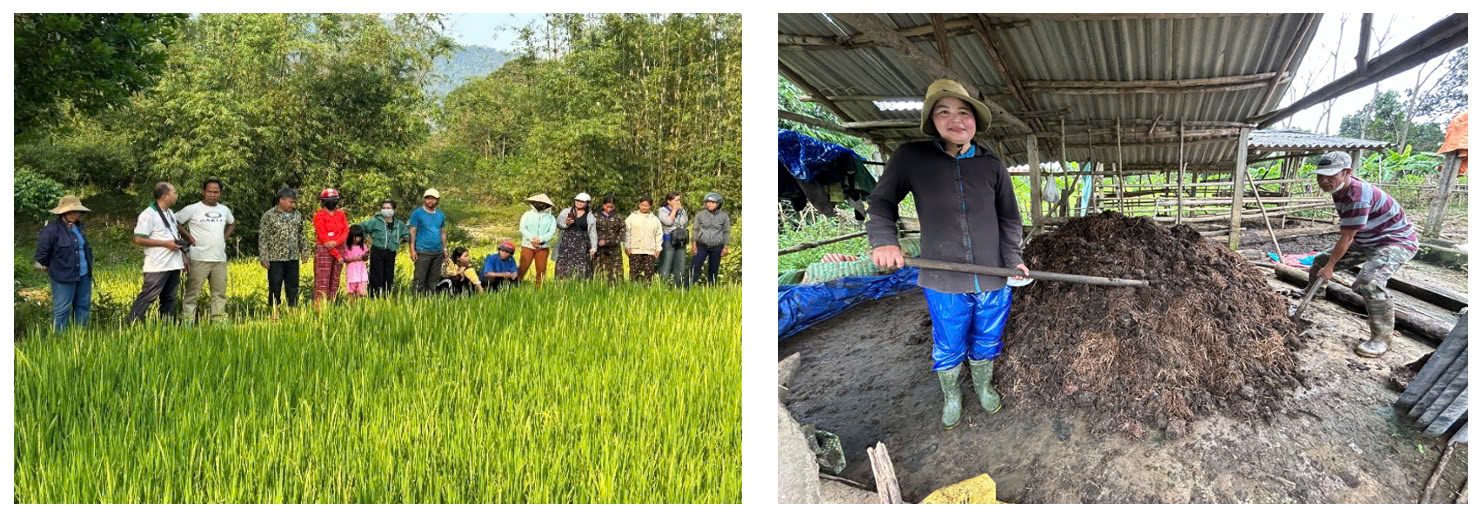
Using new drought-resistant rice varieties, reducing fertilizer usage to decrease environmental emissions
After two years of implementation, the project has led to several positive impacts as follows:
- Increased use of agricultural byproducts for livestock feed fermentation.
- Efficient waste management by converting manure into fertilizers, worm feed, and biogas fuel, reducing greenhouse gas emissions.
- Improved market access for ethnic minority farmers, especially women, leading to more stable incomes.
Notably, women in the community have become local experts, organizing knowledge-sharing and technical training for other households to spread and expand the climate-smart agricultural models. Most members of the Producer Groups are women, which has empowered them with technical knowledge, enabling them to make informed investment decisions in agriculture and enhancing their status within the ethnic minority communities
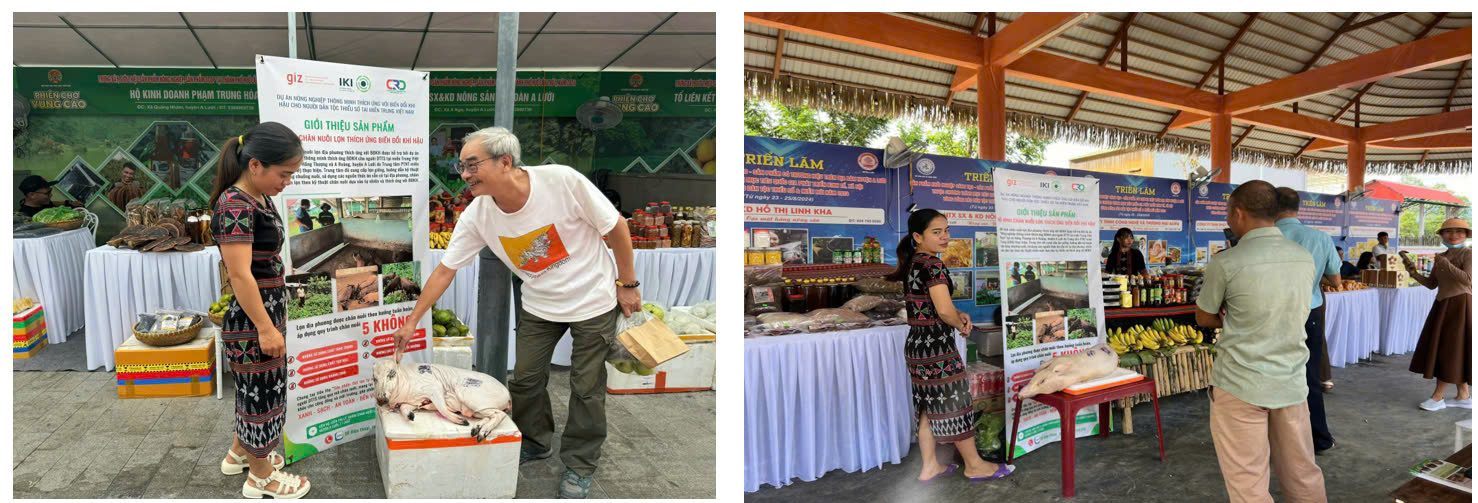
Hybrid black pork, a product from the project-supported pig farming model being introduced to customers in the Highland Market in Hue and the Startup Innovation Exhibition in A Lưới District.
At the workshop, the project coordinator also shared the advantages and challenges encountered during the project’s implementation. As far as the advantages were concerned, the project received strong support from local governments at the district and commune levels and active participation of mass organizations and local communities in project activities. Paricularly, the households implementing the models enthusiastically contributed labor and materials to build successful production models. On the other hand, the project also encountered a number of challenges, i.e. livestock disease outbreaks limited the expansion of the pig farming model, and the Shortage of local breeding stock and insufficient large-scale agricultural production to meet market demand.
Upon accessing the project’s results and impacts, Mr. Ho Van Ngum emphasized the importance of local authorities in sustaining and expanding project initiatives to enhance livelihoods and climate resilience. From CRD’s side, CRD’s Deputy Director Ho Le Phi Khanh reaffirmed CRD’s commitment to supporting sustainable livelihoods and environmentally friendly agricultural practices, ensuring long-term benefits for local communities. Dr. Khanh also highlighted the hope that the project would serve as a foundation for future climate-smart agricultural initiatives, fostering self-reliant, climate-resilient farming communities in Central Vietnam.
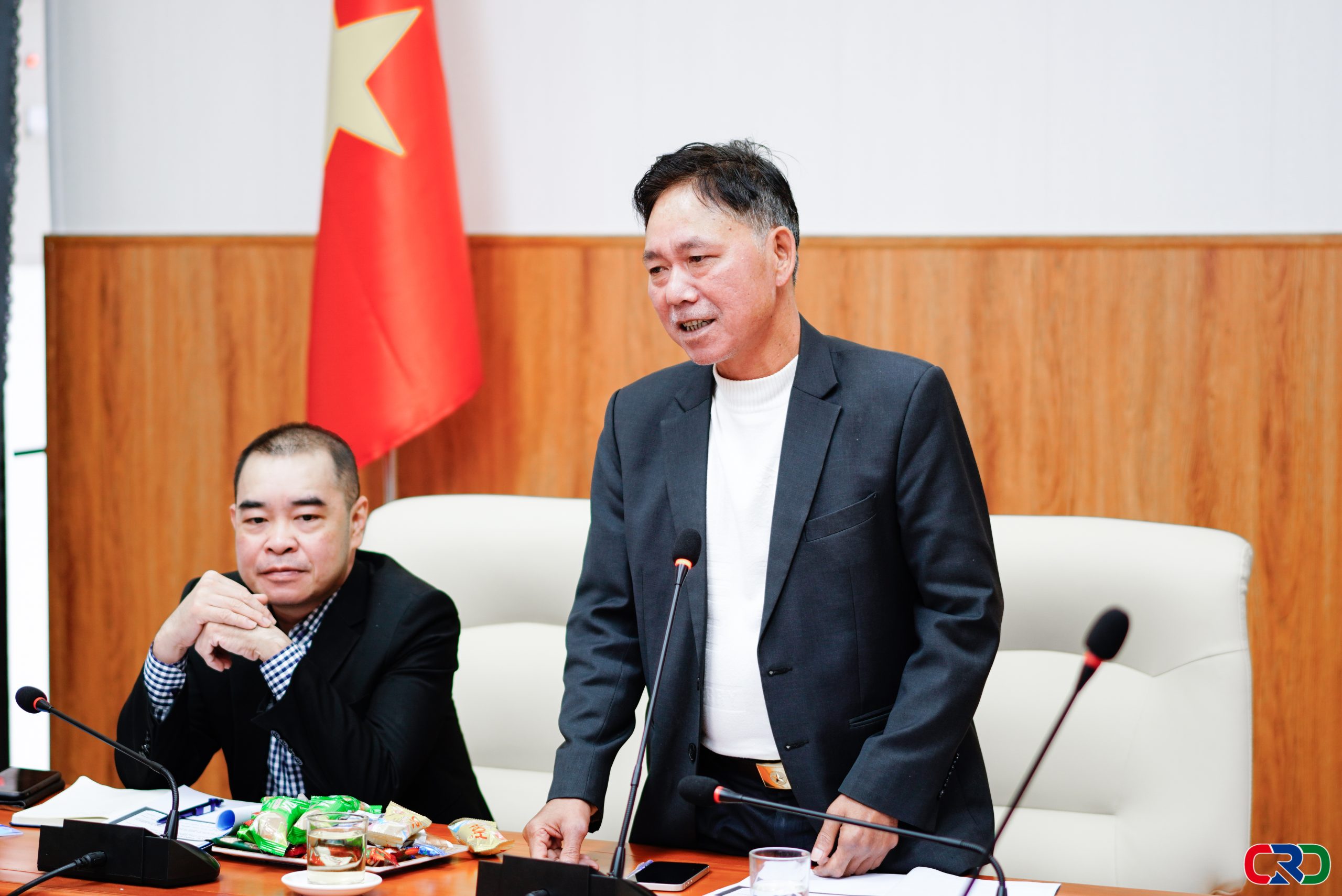
Mr. Ho Van Ngum, Vice Chairman of A Luoi District People’s Committee, emphazied the role of the local partners in maintaining and expanding the project’s models
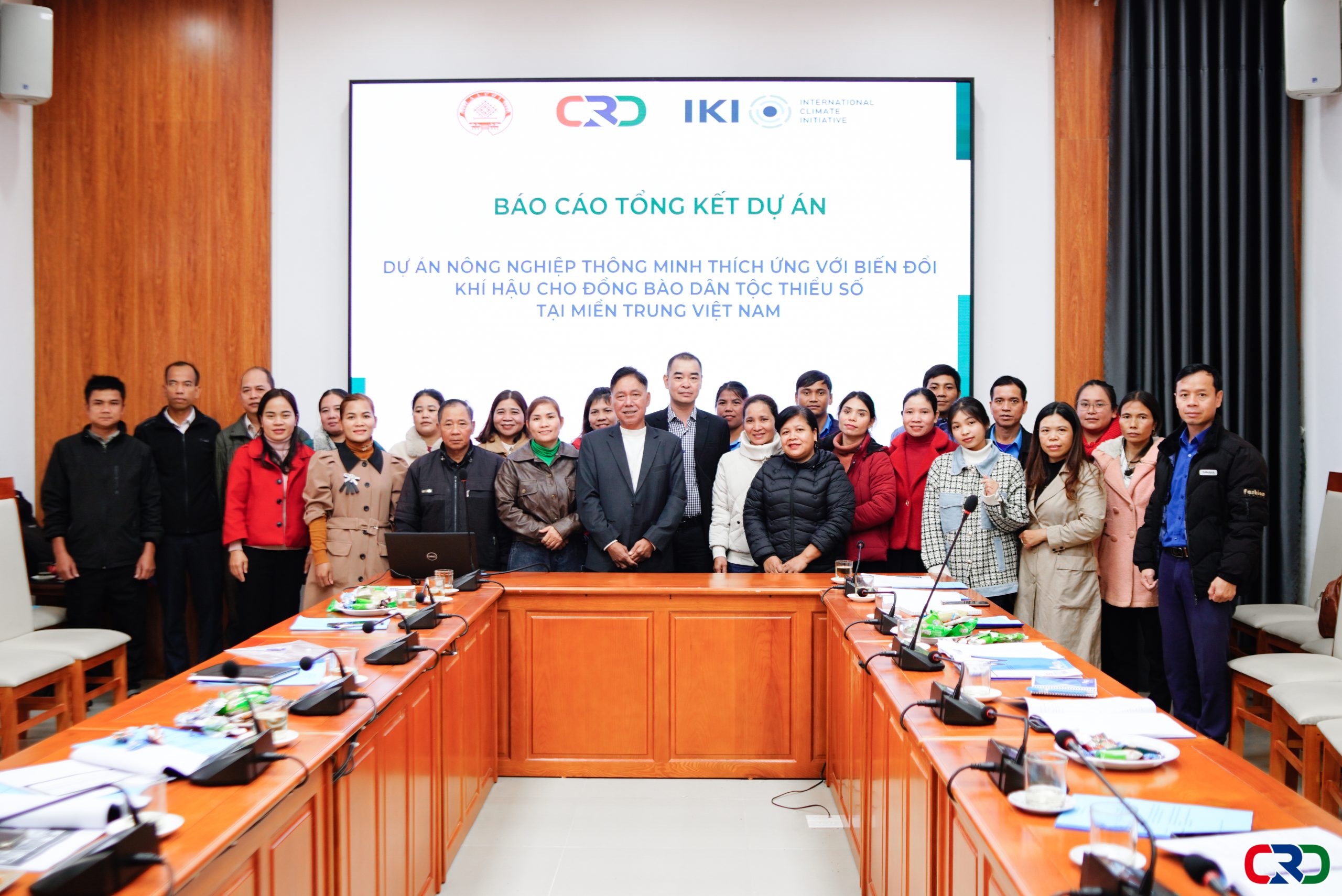
The workshop’s participants
